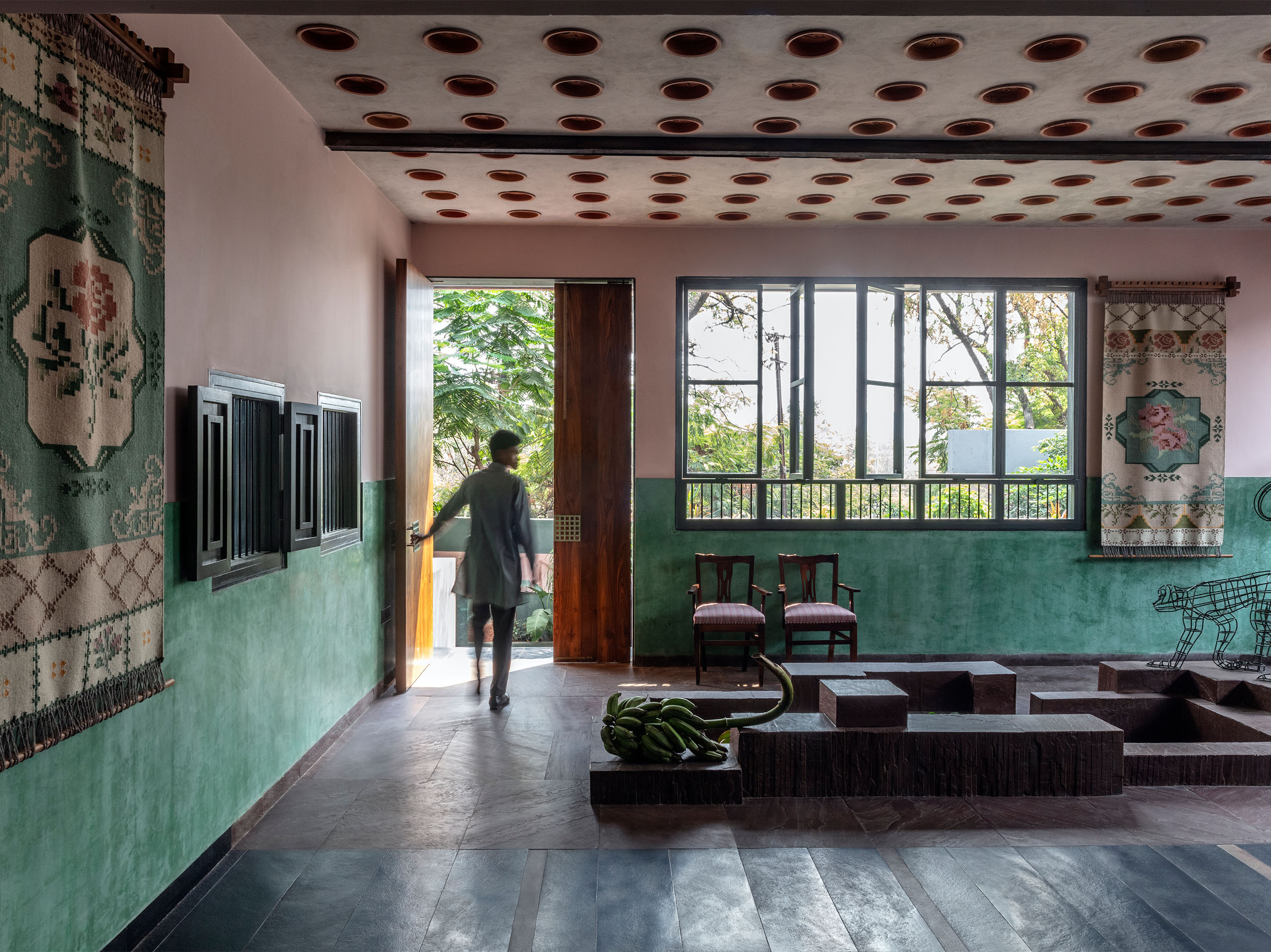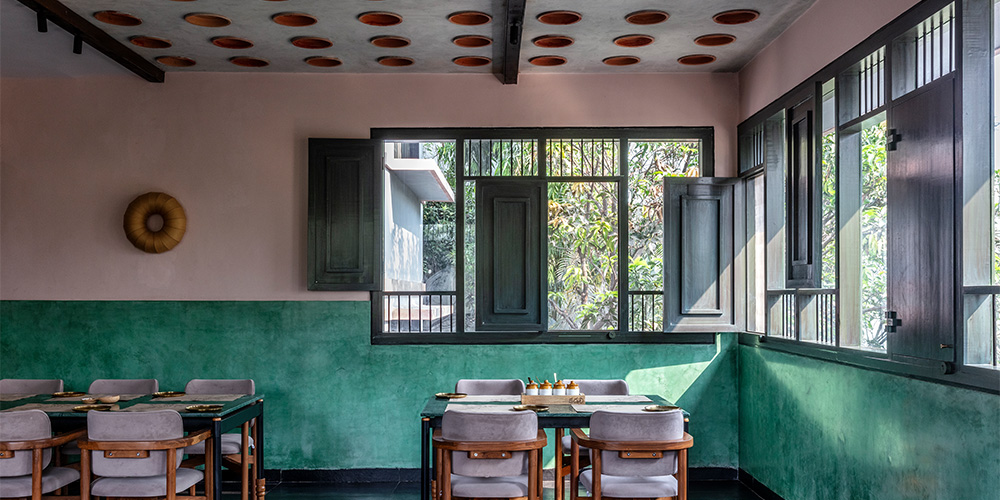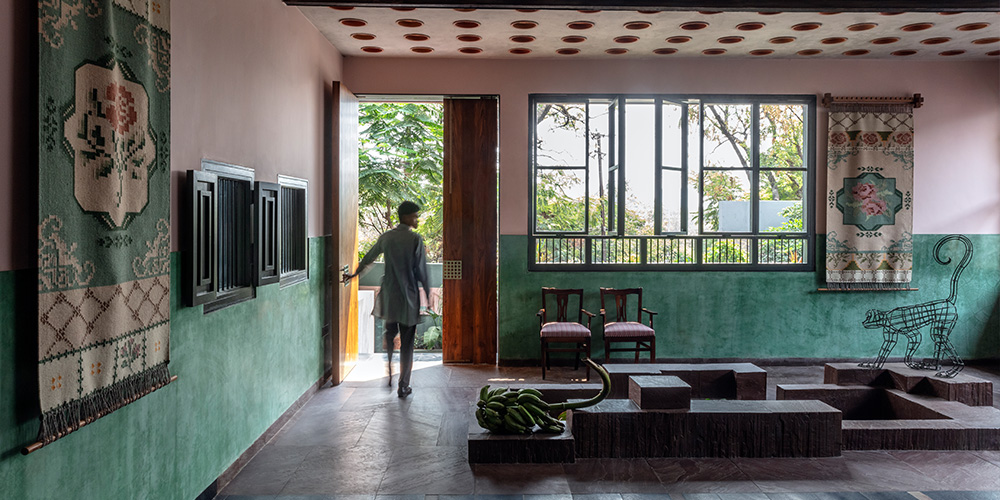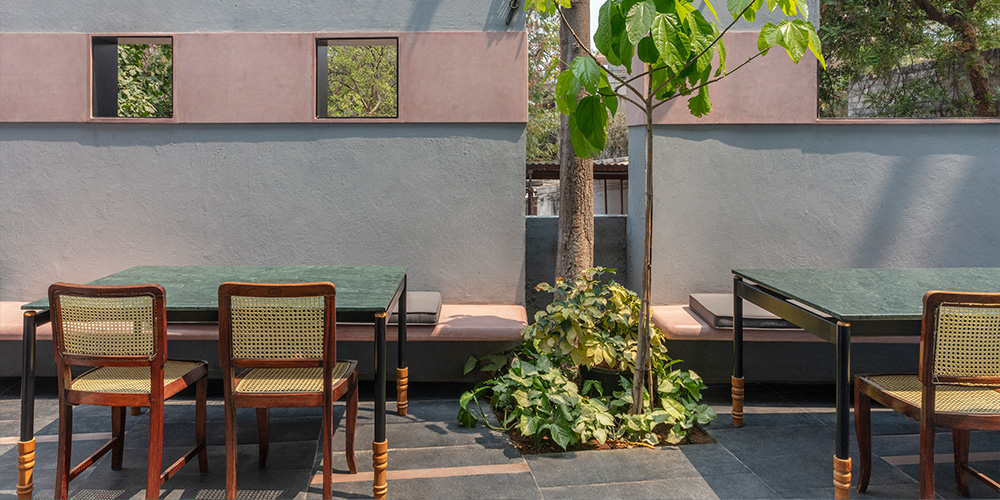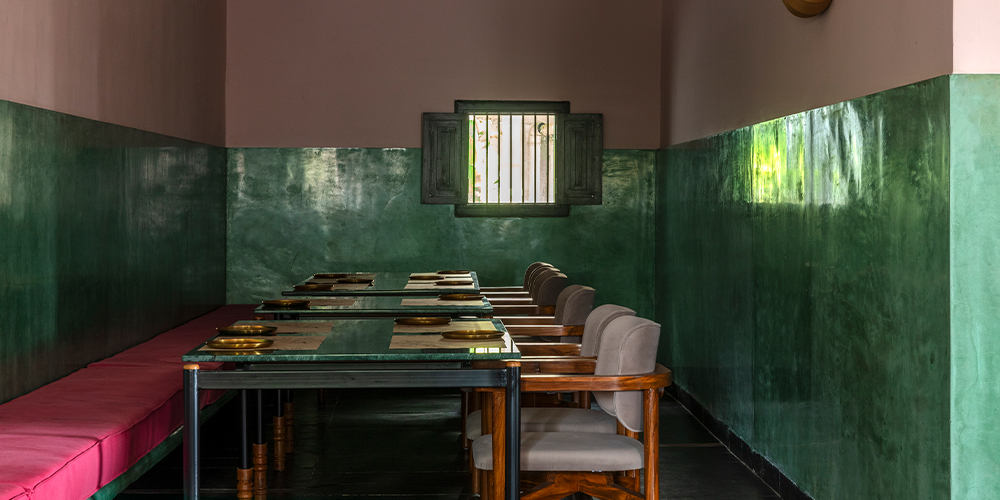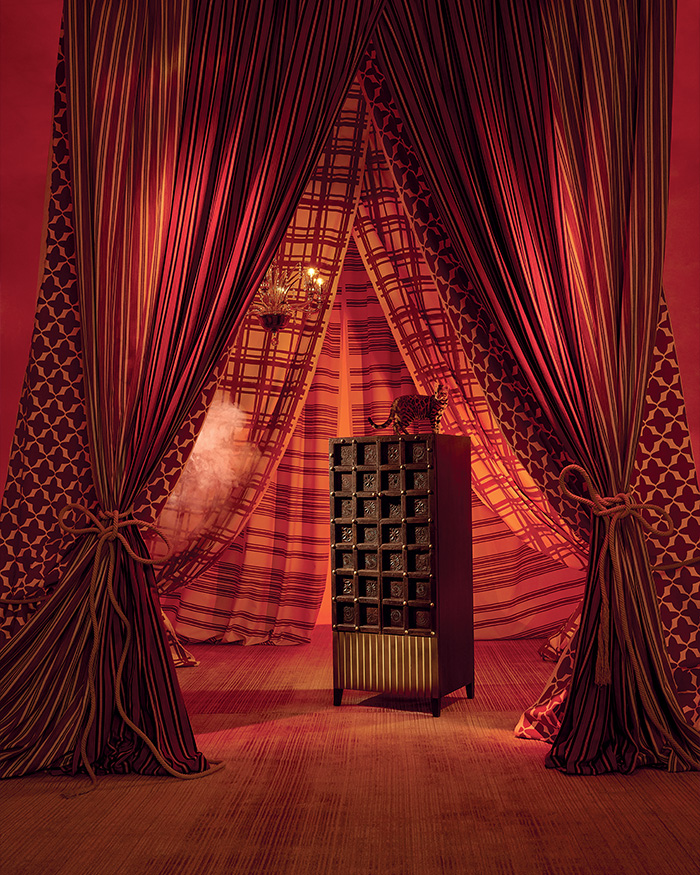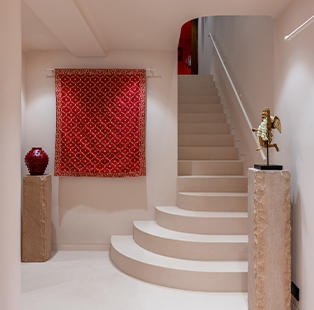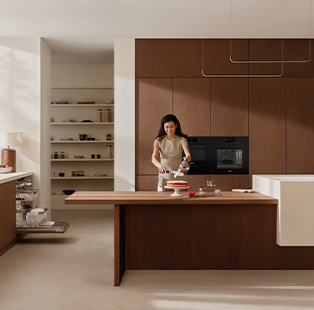Tucked away in the heart of Jubilee Hills in Hyderabad, Kadali is a traditional Telegu home that recently underwent a design facelift by Sona Reddy Studio, only to re-emerge as a grounded yet chic new restaurant in the old city of Pearls. “Bringing together the best of both worlds—old and new—this alfresco dining space, spanning 7,500 sq ft is one that evokes the essence of a bygone era through adaptive reuse of an old residence,” avers Sona Reddy, founder and principal architect of her eponymous firm.
The palette of Kadali sees a generous usage of nostalgic, earthy tones like emerald green and blush accents with materials such as Kadappa stone and Indian green marble.
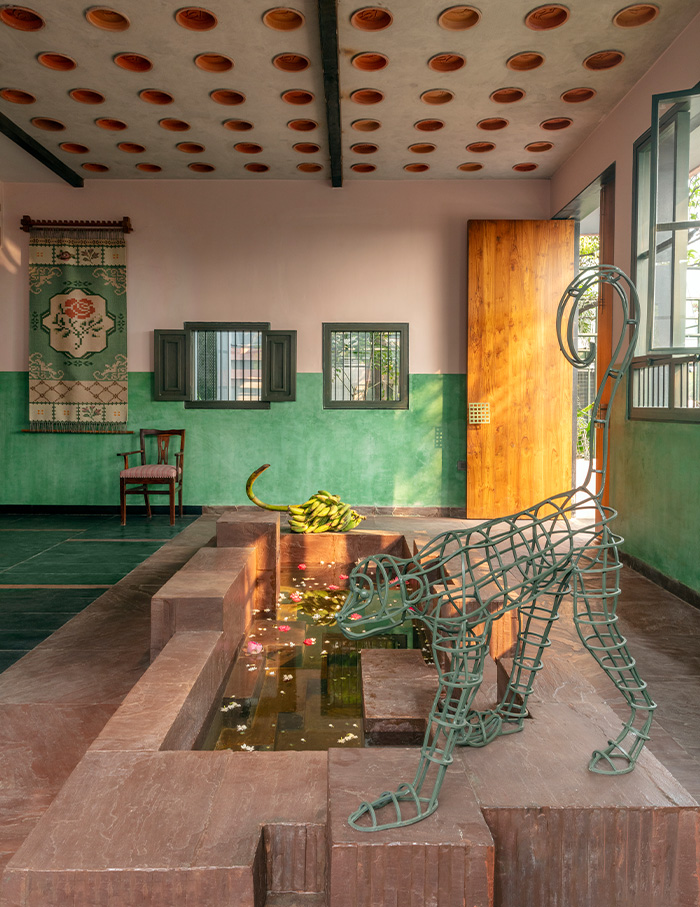
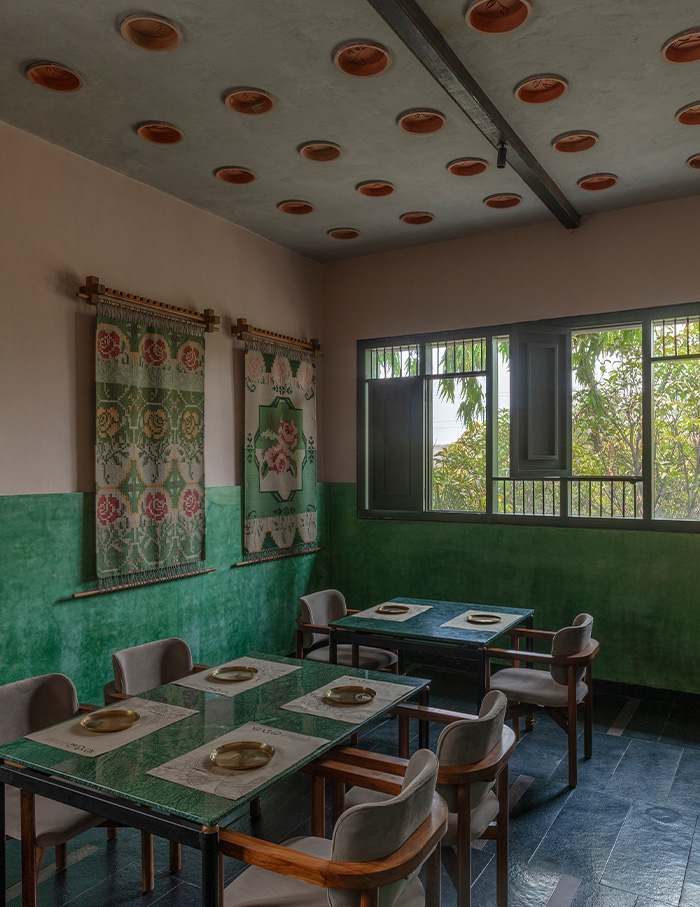
A renewed homecoming
“The ground floor’s indoor dining space was designed to evoke a traditional Telugu house, using earthy materials like Athangudi tiles and a palette that references old-style homes,” shares Sona who worked alongside her team Sona Reddy, Jemy Joy, Anjali Miriyala, Shivani Ponnapa and Shravya Kokkonda. She further enthuses that much of the original house’s structural integrity was maintained. “The use of materials like Kadapa stone, green marble, and terracotta oxide reflects a rustic, grounded aesthetic, and proffers a sense of homecoming,” she adds.
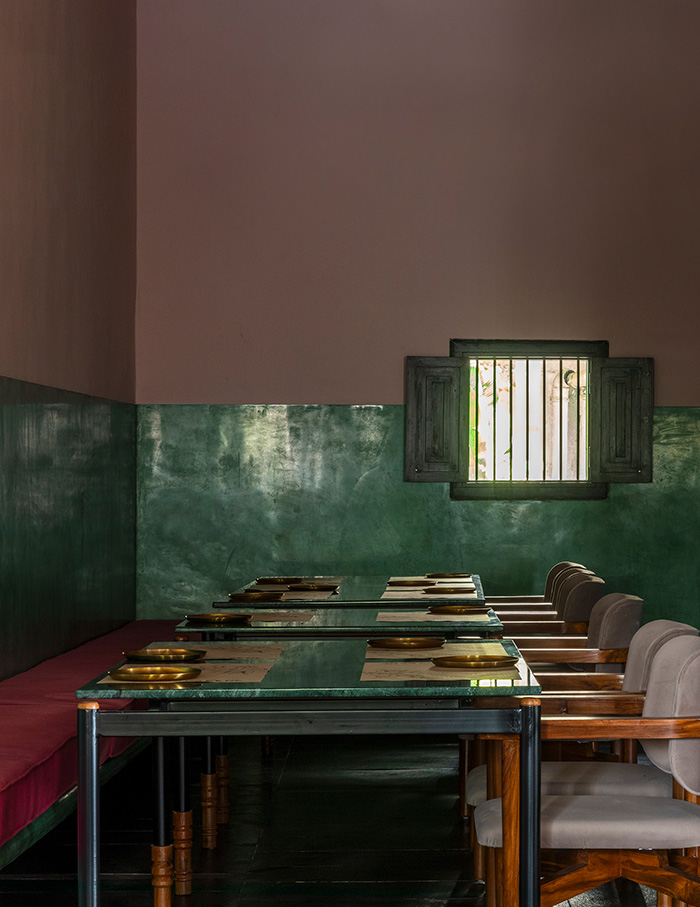
Drawing inspiration from the banana plant’s symbolism of abundance and prosperity; the interiors of Kadali come bearing with an impressive array of adaptive design features and influences—lofty teak doors, Athangudi tiles, a stepwell-inspired waterbody constructed from Mandana stone, which is redolent of traditional baolis within its stratified form, adds to the rustic charm of the space.
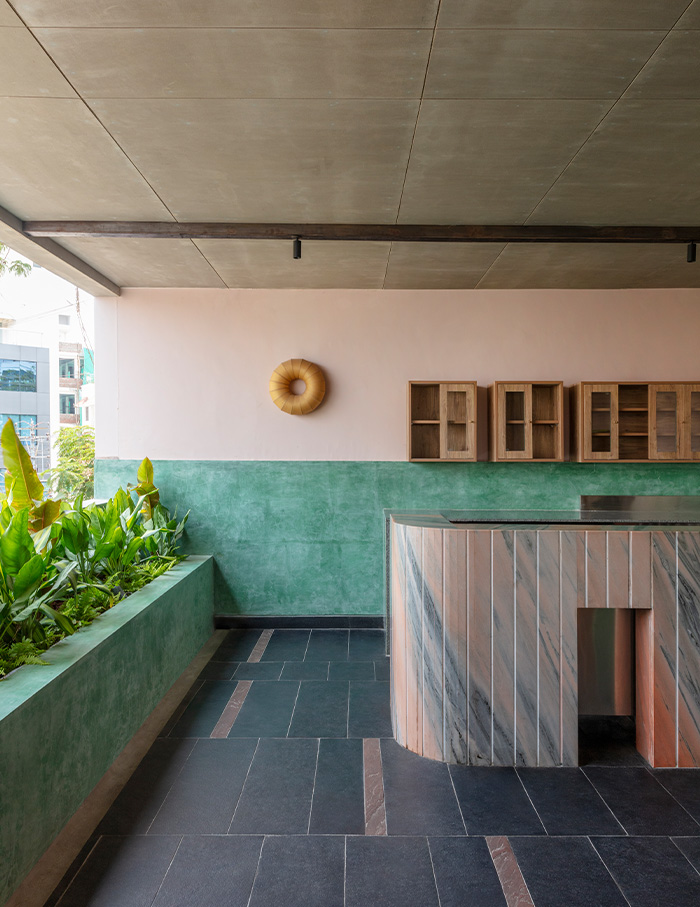
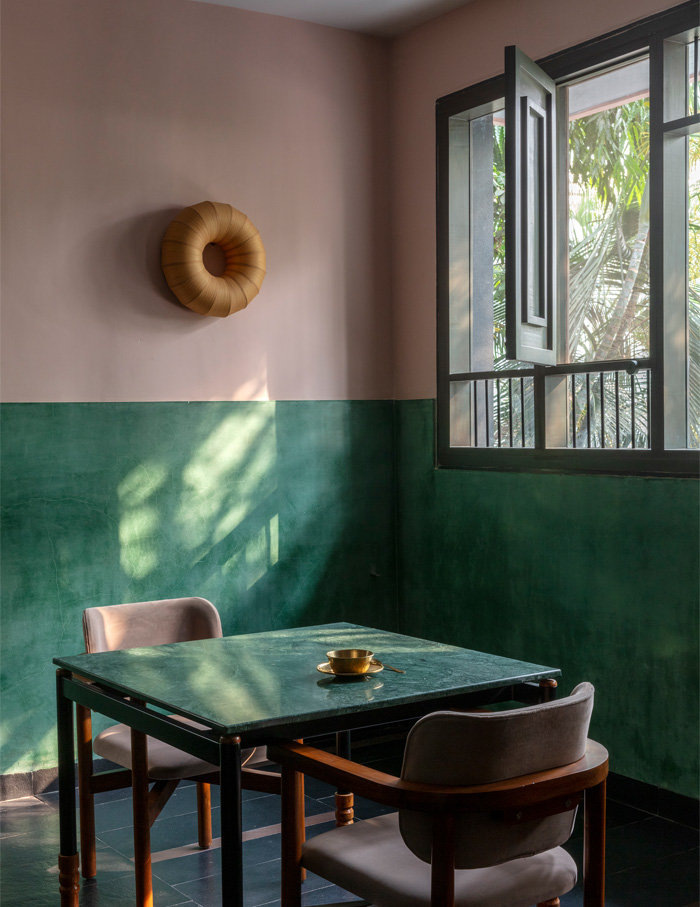
Amidst nature
Ask the designer about her most favourite area of the space, and pat comes the response: “One of my favourite highlights in Kadali is the integration of the timeworn mango tree within the alfresco dining area, which beautifully blends natural elements with modern design,” and adds that the metal monkey sculptures lend a whimsical touch, enhancing the outdoor dining experience. “The stepwell-inspired waterbody and its traditional design elements also stand out, creating a strong sense of place and history.”
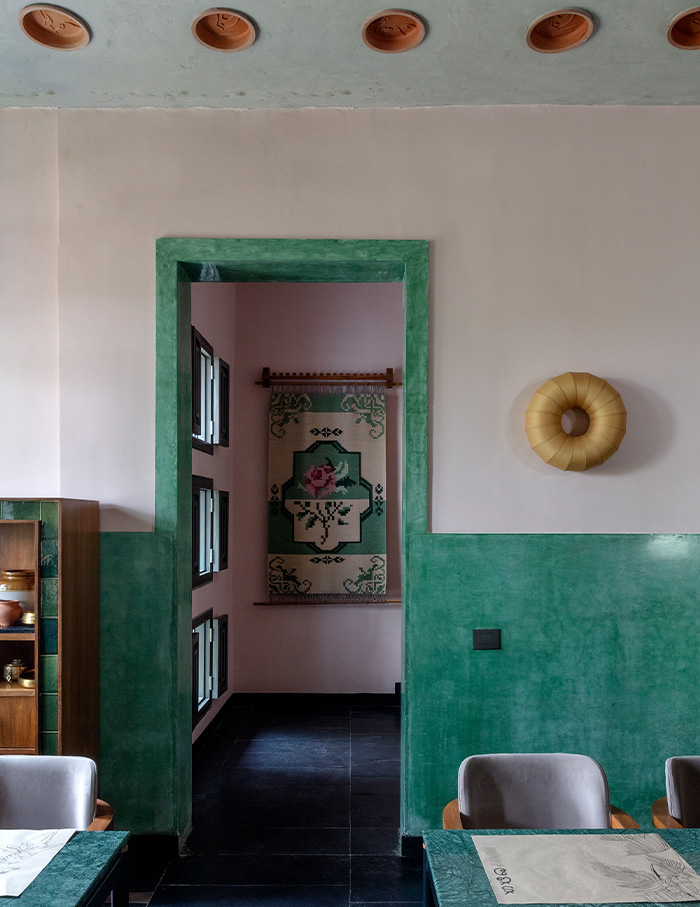
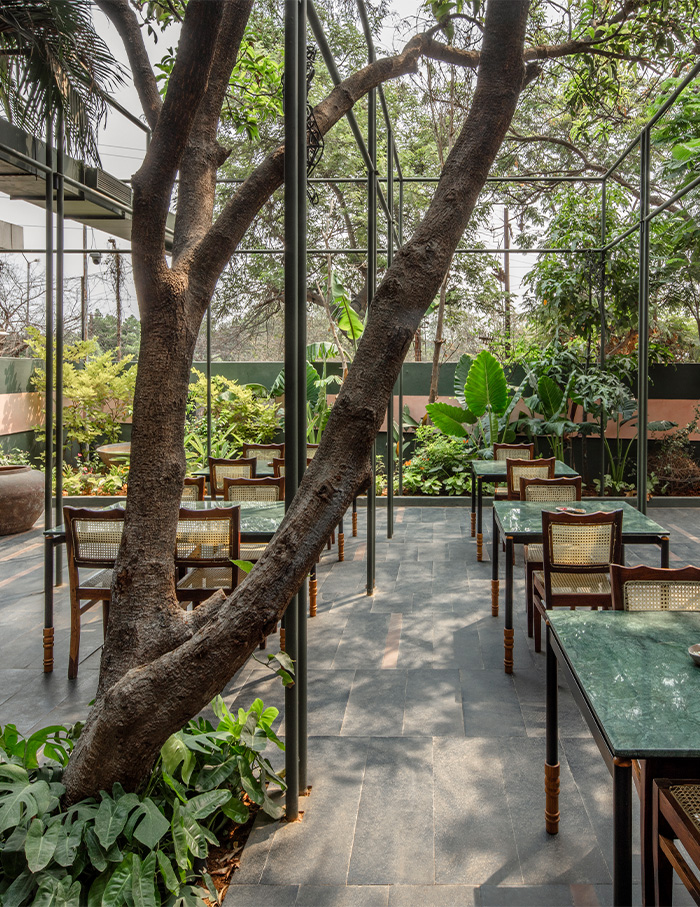
Complexities, beautiful outcomes…
Heavily inspired by childhood memories and traditional Telugu houses; Kadali evokes a sense of warmth and familiarity within the hearts of local patrons, rooted in cultural nostalgia and sustainable practices. “The adaptive reuse approach focused on retaining the house’s structural integrity and integrating elements like the timeworn mango tree and existing spatial layout. This respect for the original architecture aims to create a layered, immersive experience for visitors,” Sona details.
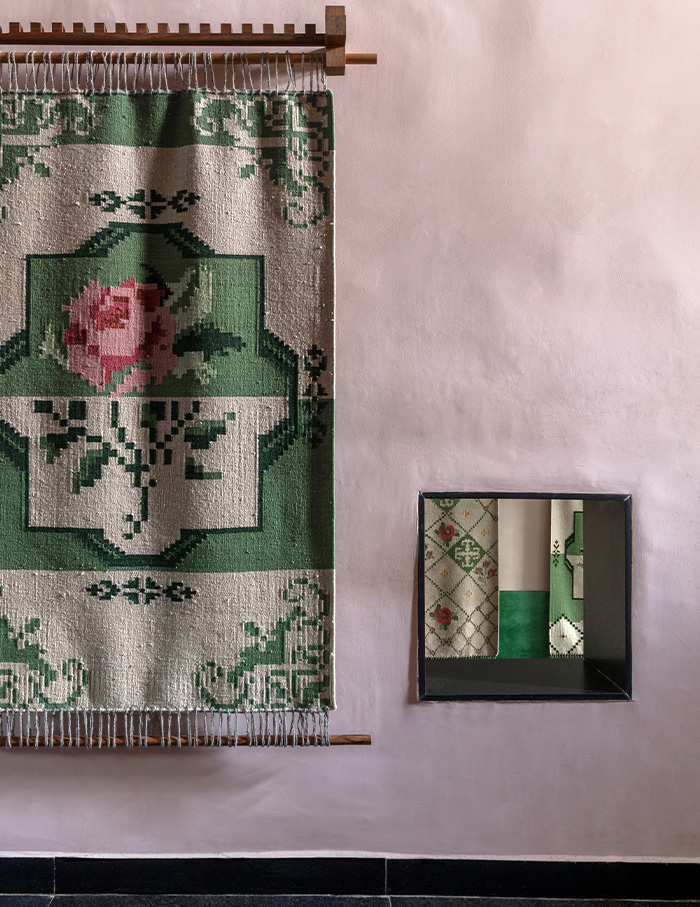
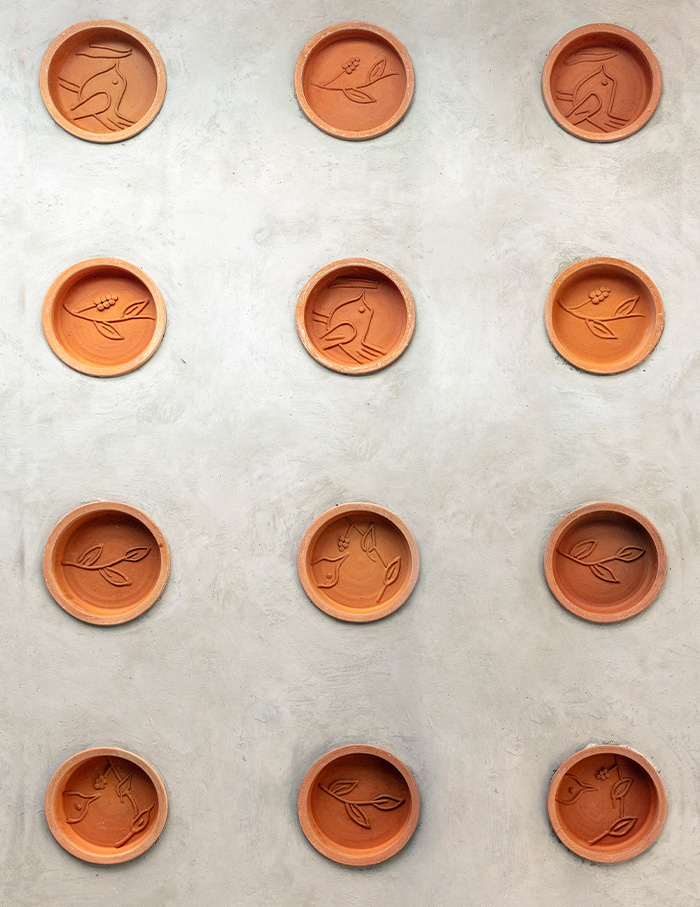
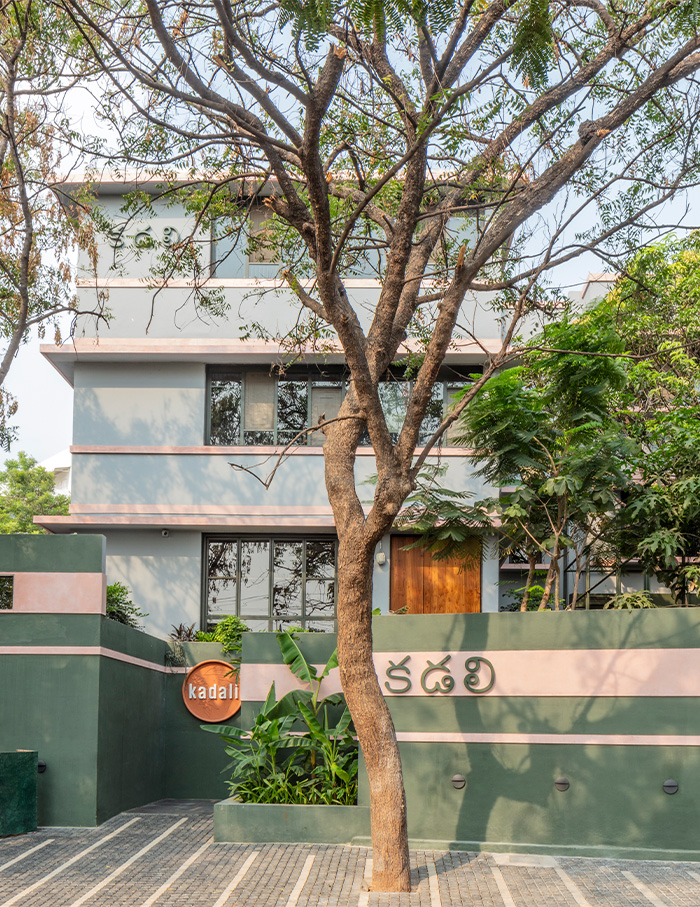
Although the results were nothing short of stunning, the execution was a bumpy ride, as preserving the structural integrity of the old residence while adapting it for a new purpose presented a complex design challenge. However, some challenges only propel you to push the envelope a little harder every step along the way, and the end result makes it worthwhile. At least it does, in the case of Kadali— a heritage Telegu home turned restaurant that serves up a side of stellar views of treetops, besides good food and even better drinks.
Read More: Ethnic aesthetics meet contemporary design at this Hyderabad home by Sona Reddy

